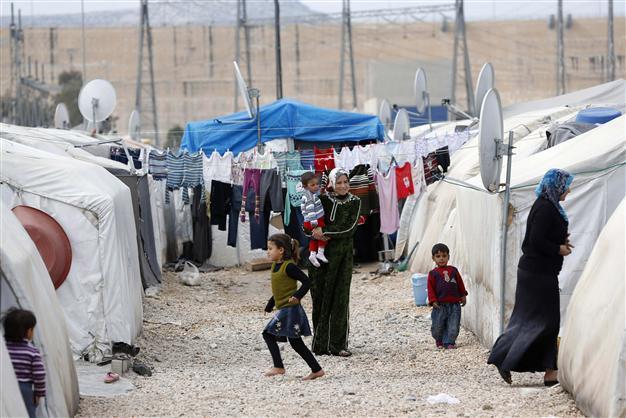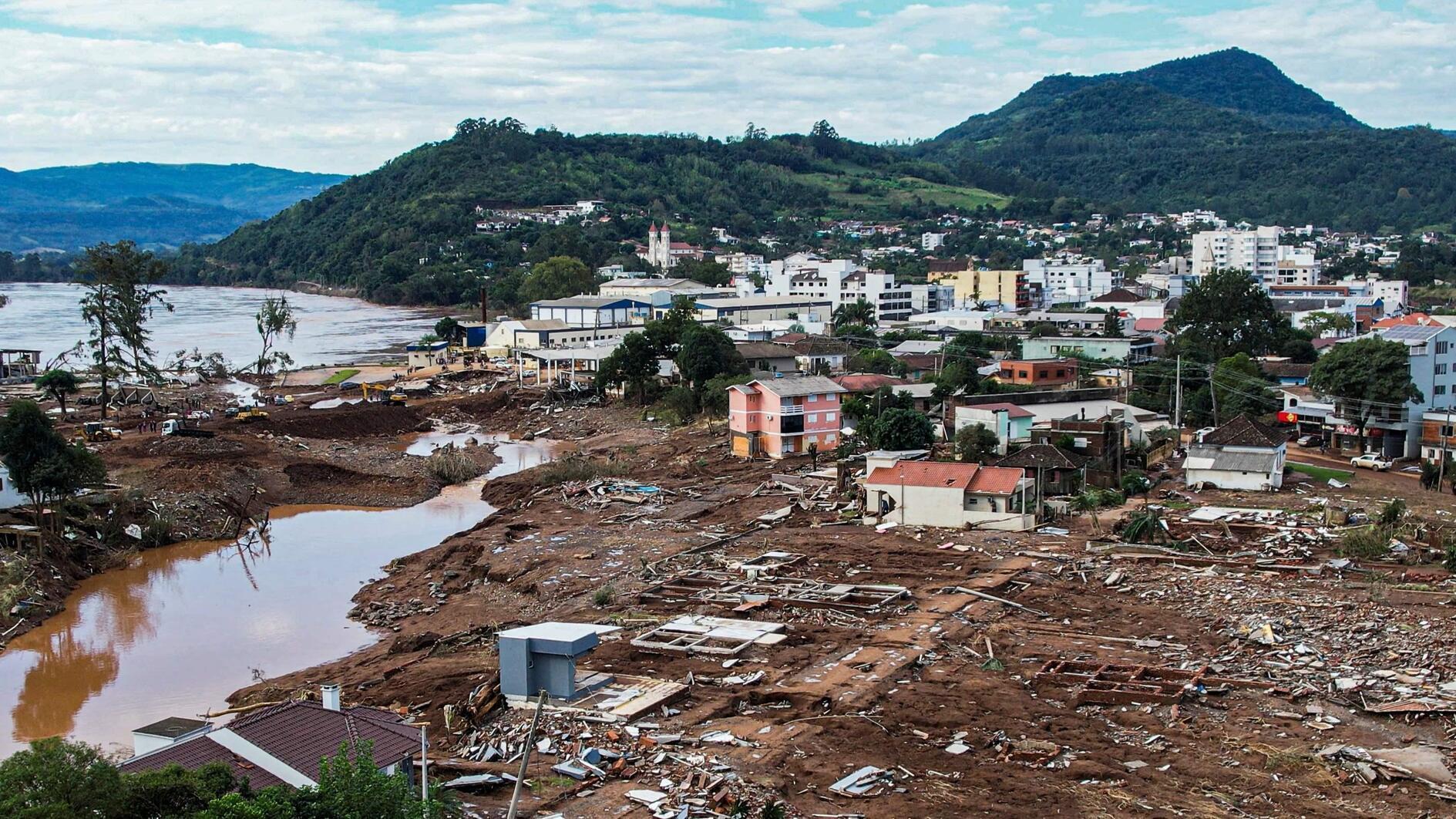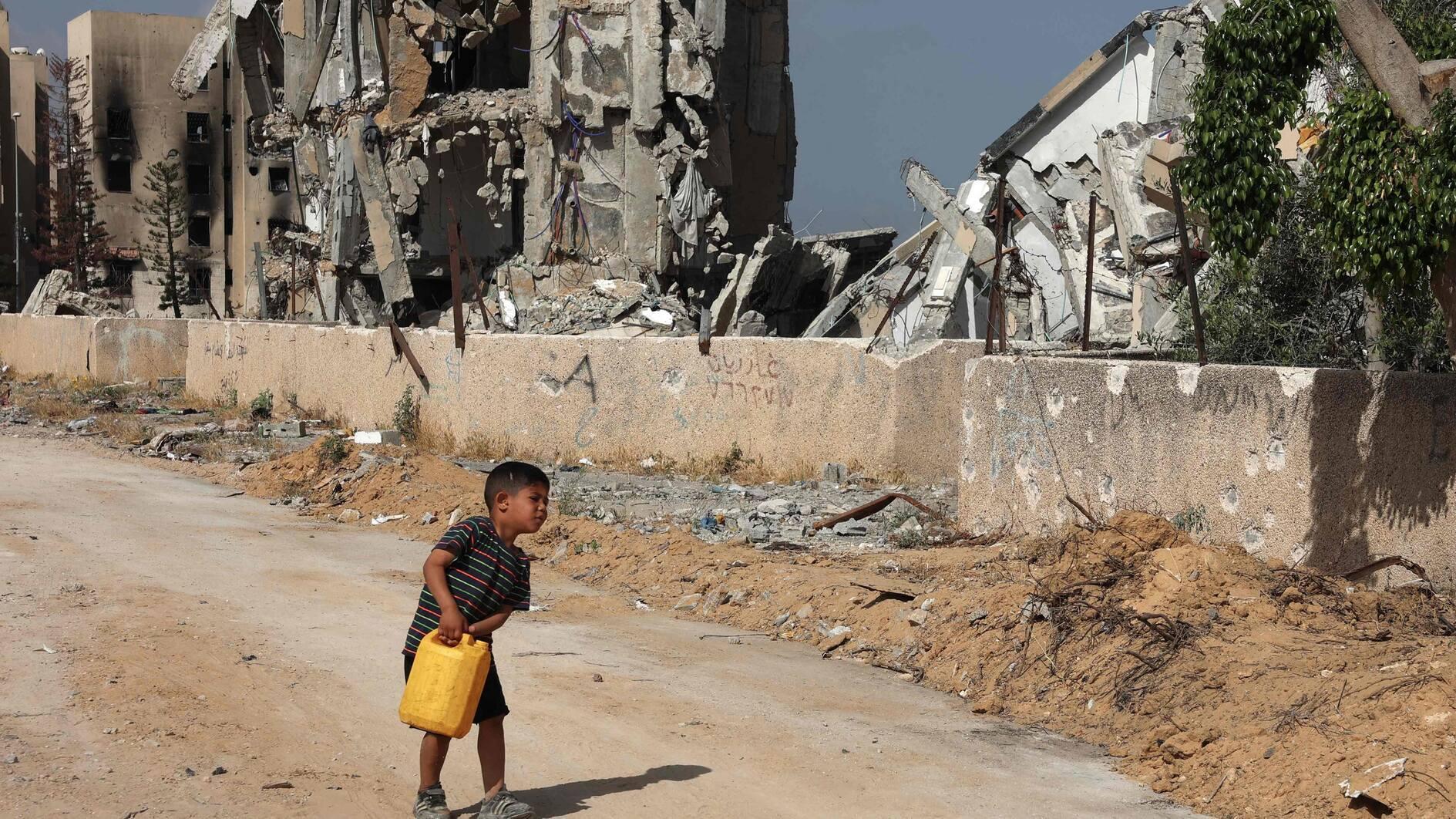Syrian refugees ‘are to stay,’ Turkey needs to take measures, report suggests
WASHINGTON

Syrian refugee women stand outside their tents at a refugee camp in Nizip in Gaziantep province, near the Turkish-Syrian border March 17, 2014. REUTERS Photo
Syrian refugees in Turkey are not about to return home anytime soon, and Ankara should begin considering long-term solutions to integrate them into social life, a report by the Washington-based Brookings Institution has suggested.“It is becoming increasingly clear that refugees are not about to return home anytime soon. This brings up a range of very difficult policy issues for the government. They range from whether the government should start to think in terms of offering refugees the possibility to remain and integrate into Turkey, to addressing urgent education, employment, health, shelter and other needs of Syrian refugees,” said the report, titled “Syrian Refugees and Turkey’s Challenges: Beyond the Limits of Hospitality.”
Turkey has taken nearly 1 million Syrian refugees and plans to maintain its open-door policy for people displaced by the civil war in Syria. The camps have become insufficient for the purposes of hosting all the refugees, and many families have moved to Turkey’s bigger cities.
The report suggested that the government and civil society “need to switch gears from policies driven by concerns of extending emergency humanitarian assistance and temporary protection to ones focusing on the long term to facilitate the possible eventual incorporation of the refugees into Turkish society.”
The United Nations estimates that there are now nearly 2.7 million Syrians registered in neighboring countries. The report said Turkey would need to develop a properly considered, debated, structured and comprehensive policy with a strong legal grounding. “As much as Turkey’s open-door policy has been a commendable one, it has had a weak legal basis. A secret regulation adopted in March 2012 should not constitute the basis of a policy that is extending protection to close to 1 million people and has cost $2.5 billion,” it said. “For very understandable reasons, many aspects of the current policy evolved incrementally and in a rather haphazard manner. This cannot continue.”
The report also called on the international community to support Turkey’s efforts. “Turkey should not have to bear the cost of this policy transformation alone. Protecting and caring for refugees is an international responsibility,” it said.
U.N. refugee chief Antonio Guterres earlier this month criticized the international community for “not contributing enough” to solve the issue.
















